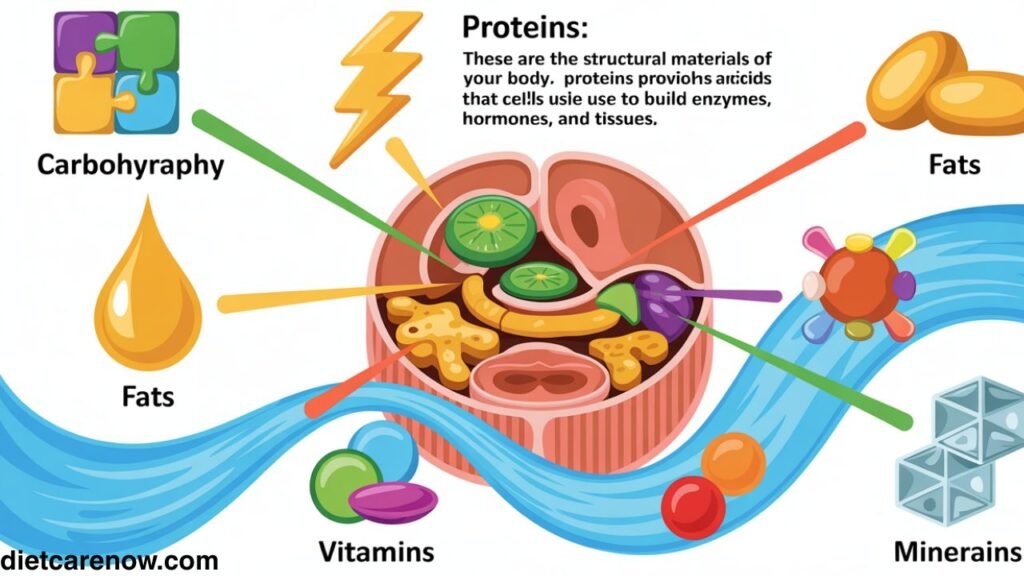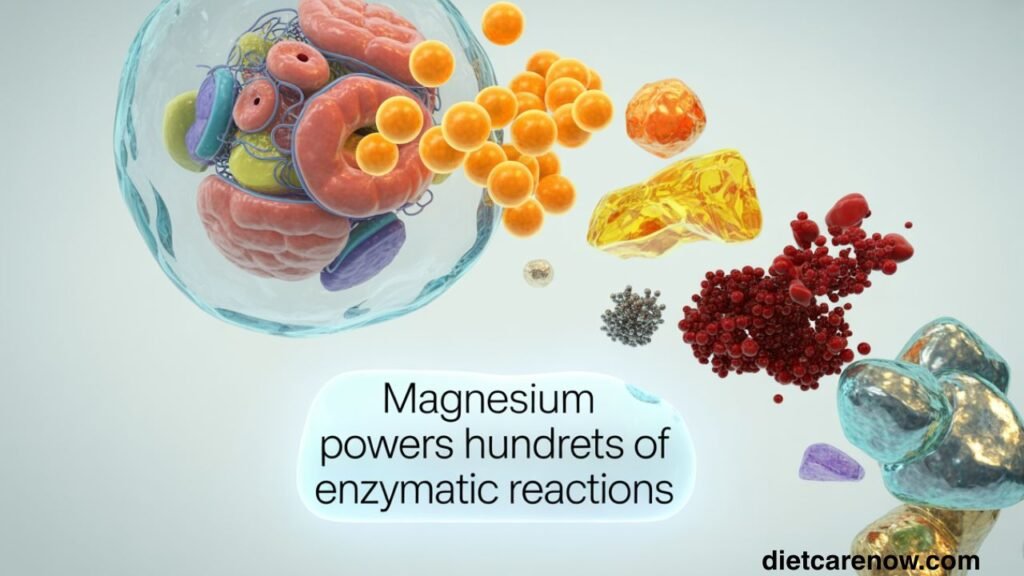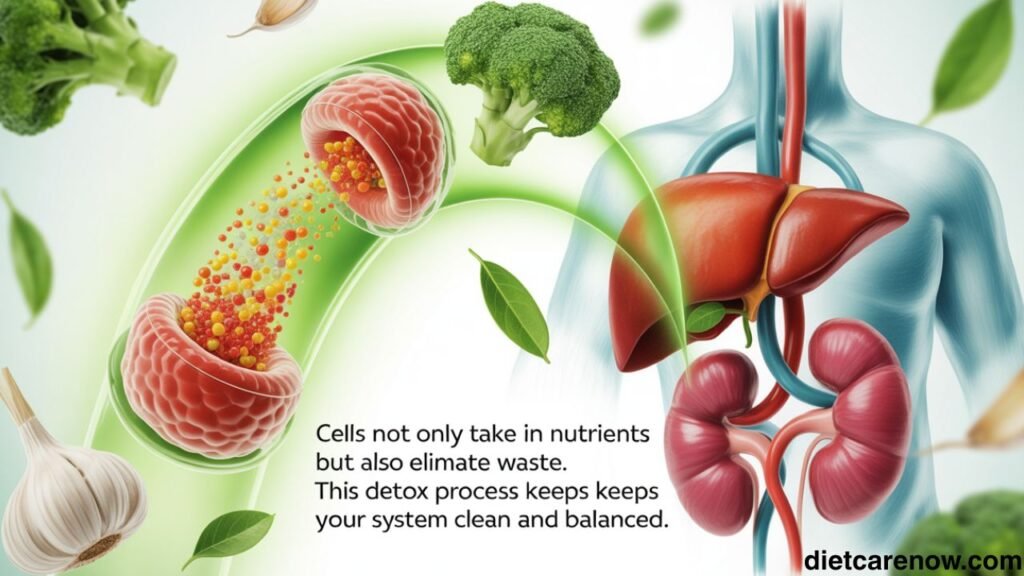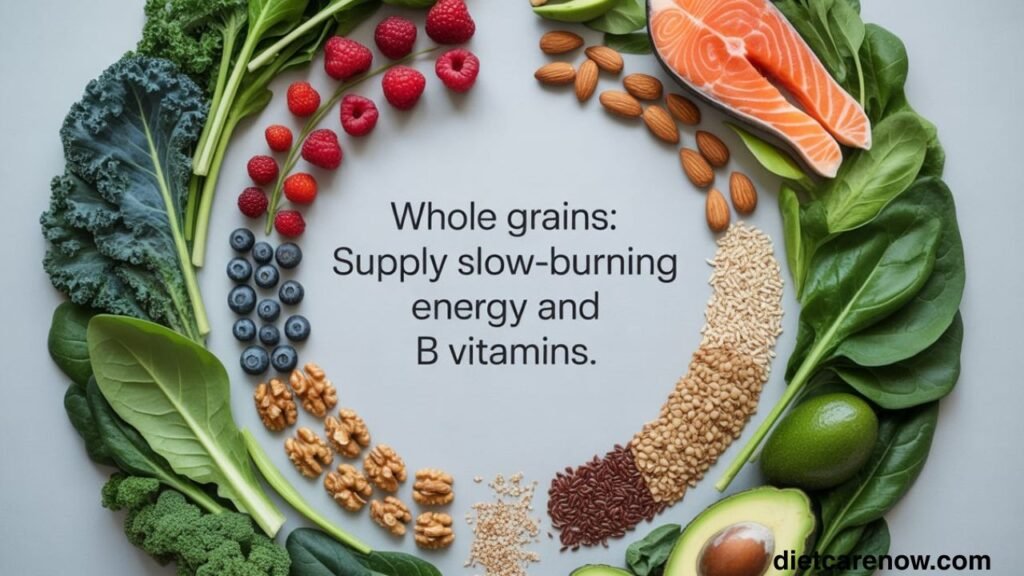Every organ, tissue, and system in your body starts with a single cell. These microscopic units are the building blocks of life — working tirelessly to produce energy, repair damage, and keep you alive. But just like you need food to function, your cells need the right nutrients to stay healthy. This is where cell nutrition comes in.
Cell nutrition refers to the process by which your cells receive, absorb, and use nutrients to perform essential functions. It’s not just about eating healthy; it’s about understanding how food fuels your cells from the inside out.
When your cells get the nutrients they need, everything from your skin to your brain performs better. But when they don’t, the effects show up as fatigue, slower healing, poor immunity, and even chronic diseases. Understanding how cellular nutrition works can completely change how you approach your health.
The Building Blocks of Cellular Nutrition
For cells to function properly, they rely on a mix of macronutrients, micronutrients, and water — each playing a unique role in cellular maintenance and repair.
Macronutrients
- Proteins: These are the structural materials of your body. Proteins provide amino acids that cells use to build enzymes, hormones, and tissues.
- Carbohydrates: The primary source of cellular energy. Glucose, derived from carbs, fuels everything from your heartbeat to your thoughts.
- Fats: Healthy fats like omega-3s are crucial for cell membrane structure, hormone production, and inflammation control.
Micronutrients
Vitamins and minerals act as cofactors for enzymes — helping cellular reactions happen efficiently.
- Vitamins (like A, C, D, E, and B-complex) support metabolism, repair, and defense.
- Minerals (like magnesium, zinc, and iron) help with oxygen transport, nerve signaling, and cellular energy production.
Water
Often overlooked, water is vital for nutrient transport, detoxification, and maintaining the right chemical balance inside and outside cells. Even mild dehydration can reduce cellular efficiency.
Also read: /breast-augmentation/

How Cells Absorb and Utilize Nutrients
Your digestive system breaks food down into molecules small enough for your cells to use. Once absorbed into the bloodstream, nutrients travel to cells through capillaries. Then, special transport systems carry these nutrients across the cell membrane.
Inside, mitochondria — often called the “powerhouses” of the cell — convert nutrients into usable energy. Enzymes regulate every step of this process, ensuring your body gets what it needs, when it needs it. If one enzyme or nutrient is missing, entire systems can slow down or stop.
In simple terms, cellular nutrition is like a supply chain: your food provides raw materials, your blood delivers them, and your cells turn them into energy and repair materials.
Cellular Energy Production: The Role of ATP
Every cell’s ultimate goal is to produce ATP (adenosine triphosphate) — the body’s energy currency. Without ATP, no cell can function.
Cells generate ATP through cellular respiration, a series of reactions that convert glucose and fatty acids into energy.
- Glycolysis: Glucose breaks down into smaller molecules, releasing some energy.
- Krebs Cycle: Inside the mitochondria, these molecules undergo chemical reactions, producing electron carriers.
- Electron Transport Chain: These carriers generate ATP using oxygen.
When nutrient intake is balanced, this system runs smoothly. But nutrient deficiencies, low oxygen levels, or toxin exposure can disrupt ATP production — leading to fatigue and poor cellular performance.
The Impact of Poor Nutrition on Cellular Health
When your diet lacks essential nutrients, your cells struggle to function optimally. Poor nutrition leads to cellular stress — an imbalance between free radical production and the body’s ability to counteract them.Deficiencies in vitamins like B12 or minerals like iron can affect red blood cell formation and oxygen transport.
Over time, nutrient imbalances contribute to oxidative damage, where unstable molecules called free radicals attack cell membranes and DNA.This damage is linked to chronic diseases such as diabetes, heart disease, and cancer. Simply put, unhealthy cells create an unhealthy body.
Essential Nutrients for Optimal Cell Function
To thrive, your cells need a steady supply of essential nutrients:
- Vitamins:
- A supports cell growth and immunity.
- B-complex aids energy production.
- C boosts collagen and antioxidant defense.
- D regulates calcium and cell signaling.
- E protects cell membranes from damage.
- K helps with blood clotting and bone metabolism.
- Minerals:
- Magnesium powers hundreds of enzymatic reactions.
- Zinc aids DNA repair and immune defense.
- Iron helps transport oxygen.
- Calcium is vital for signaling and muscle contraction.
- Antioxidants:
These protect cells from oxidative stress and support repair. Found in colorful fruits and vegetables, antioxidants like polyphenols, flavonoids, and selenium keep cells resilient.

The Role of Antioxidants in Cellular Protection
Every day, your body encounters free radicals — unstable molecules formed during metabolism or exposure to pollution and stress. In excess, they can damage DNA and accelerate aging.
Antioxidants neutralize these radicals, protecting your cells from harm.
- Natural Sources: Berries, green tea, spinach, nuts, and dark chocolate.
- Supplements: Can help fill gaps, but whole foods offer better absorption and synergy between nutrients.
In essence, antioxidants are your cells’ first line of defense against daily wear and tear.
Cellular Hydration and Electrolyte Balance
Water is more than a thirst quencher — it’s a medium for cellular life. It helps dissolve nutrients, remove waste, and maintain internal pressure inside cells.
Electrolytes like sodium, potassium, and magnesium regulate hydration at a cellular level.
- Sodium controls fluid balance.
- Potassium supports nerve impulses and muscle contractions.
- Magnesium stabilizes ATP and DNA structure.
Even mild dehydration slows down cellular reactions, making you feel tired and foggy. Signs include dry skin, fatigue, and poor concentration. Staying hydrated helps your cells communicate, repair, and function efficiently.
Gut Health and Nutrient Absorption
Healthy cells depend on a healthy gut. Your gut microbiota — the community of bacteria living in your intestines — helps break down food, synthesize vitamins, and improve nutrient absorption.
When your gut balance is disrupted (due to antibiotics, poor diet, or stress), nutrient uptake suffers.
Probiotics (found in yogurt, kefir, and fermented foods) and prebiotics (fibers in foods like garlic and bananas) support beneficial bacteria, improving overall nutrient delivery to your cells.
Think of your gut as the gatekeeper of your cellular nutrition — if it’s not functioning well, your cells can’t receive what they need.
Cellular Detoxification and Waste Removal
Cells not only take in nutrients but also eliminate waste. This detox process keeps your system clean and balanced.
The liver and kidneys are the main detox organs, filtering out harmful substances and processing cellular byproducts. Within cells, structures called lysosomes break down waste materials, while autophagy recycles damaged components.
Foods like garlic, cruciferous vegetables (broccoli, kale), and green tea support these detox pathways by enhancing enzyme activity. Regular hydration and fiber intake also help flush out toxins naturally.

The Link Between Cellular Nutrition and Aging
Aging isn’t just about wrinkles — it’s about how well your cells maintain themselves over time. Cellular aging is driven by oxidative stress, inflammation, and DNA damage.Nutrients such as omega-3s, antioxidants, and polyphenols slow this process by reducing cellular damage. Telomeres, the protective caps on chromosomes, shorten as cells age, but nutrient-rich diets and active lifestyles can help preserve them.
Habits like eating whole foods, managing stress, and staying active don’t just make you feel young — they help your cells stay youthful too.
Cellular Nutrition and Disease Prevention
Optimal cellular nutrition plays a crucial role in preventing chronic disease. When cells have what they need, inflammation decreases, immunity improves, and repair mechanisms strengthen.
- Immunity: Vitamins C, D, and zinc boost immune cell activity.
- Cancer Prevention: Antioxidants and phytonutrients protect DNA from mutations.
- Heart Health: Omega-3s and magnesium reduce oxidative stress in blood vessels.
Emerging research in nutrigenomics — the study of how nutrients affect gene expression — shows that food can literally switch genes on or off, influencing your long-term health.
Best Foods for Cellular Health
To feed your cells effectively, focus on whole, nutrient-rich foods.
- Leafy greens (spinach, kale): High in magnesium and antioxidants.
- Berries: Packed with vitamin C and polyphenols.
- Nuts and seeds: Provide healthy fats and minerals.
- Fish: Rich in omega-3 fatty acids.
- Whole grains: Supply slow-burning energy and B vitamins.
- Legumes: Excellent sources of plant-based protein.
Sample Daily Plan for Cellular Nutrition:
- Breakfast: Oatmeal with berries and chia seeds.
- Lunch: Grilled salmon with quinoa and spinach.
- Snack: A handful of almonds and green tea.
- Dinner: Lentil soup with avocado and whole-grain bread.
- Hydration: 8–10 glasses of water daily.

Modern Challenges to Cellular Nutrition
Modern life poses new threats to your cellular health. Processed foods, pollution, stress, and lack of sleep all impact how your cells absorb and use nutrients.
- Processed foods lack essential micronutrients and increase oxidative stress.
- Chronic stress raises cortisol levels, which can deplete magnesium and vitamin C.
- Sleep deprivation slows cellular repair and weakens immune response.
- Environmental toxins from air and water can overload detox pathways.
The solution? A balanced diet, proper sleep, regular exercise, and mindfulness practices to keep your cells in balance.
Conclusion: Nurturing Your Cells for Lifelong Vitality
Your health begins at the cellular level. Every bite you eat, every glass of water you drink, and every hour of rest you get contributes to how well your cells perform.
By understanding and supporting cell nutrition, you’re not just improving your energy or immunity — you’re investing in the foundation of long-term vitality.
Feed your cells wisely, stay hydrated, manage stress, and move daily. When your cells thrive, you thrive.

